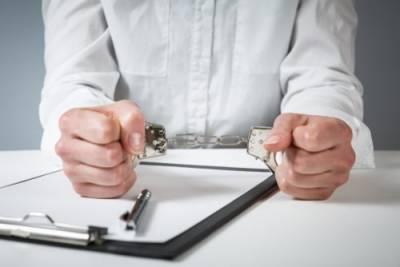Frequently Asked Questions About Bail and Bail Bonds in Texas

If you have been arrested, you may be wondering how bail works and whether you should get a bail bond. Bail is money that you pay to the court to guarantee that you will appear for your court hearings. If you do not show up for court, the court will keep the bail money. If you do show up at scheduled court dates and meet all requirements during your case, the money will be refunded back to you. However, judges often set bail at high amounts, and if you are unable to pay the full amount, you can work with a bail bondsman who will pay bail to the court on your behalf. In most cases, you will pay 10 percent of the total bail amount to the bail bondsman, which will allow you to be released from custody during your criminal case.
Why Am I Required to Pay Bail to Be Released From Jail?
In many cases, criminal courts are concerned that people who have been arrested will flee after being released rather than showing up for required court appearances during their cases. By requiring people to pay bail before they can be released, bail is meant to serve as a guarantee that they will appear in court when required and also follow any other requirements put in place by a judge.
How Is the Amount of Bail Set?
The amount of bail is set by a judge or magistrate at your arraignment, which is your first court hearing after being arrested. The judge or magistrate will consider factors such as the severity of the alleged crime, whether you have a criminal record, and whether you are a flight risk. For less serious offenses, bail may be lower, but for crimes that are seen as harmful to the public, such as violent crimes, bail may be set at well over $10,000. For especially severe offenses, such as murder, or for high-profile crimes, bail may even be over $100,000. Other factors may also lead a judge to set bail at a higher amount, such as the possibility that you are a flight risk or that you may cause harm to others after being released.
Do I Have to Use a Bail Bondsman to Pay Bail?
If you can pay the full amount of bail on your own, you can do so, and as long as you meet all of the court's requirements, you will receive this amount back once your criminal case has concluded. However, it is often a good idea to use a bail bondsman even if you have the financial means to pay bail. A bail bondsman can help you make sure you will meet all requirements during your case, and they can ensure that you will be released as quickly as possible. This can be especially beneficial if you need some time to raise money; at Doc's Bail Bonds, we accept multiple forms of payment, including setting up payment plans or holding collateral such as the title to a vehicle until other forms of payment can be made. We strive to address issues related to bail as quickly and efficiently as possible.
What Happens if I Do Not Show Up for Court?
If you fail to appear at a future court date, or if you violate other restrictions put in place by the judge, then the court will keep your bail money and issue a warrant for your arrest. If you used a bail bondsman to pay bail, they will find and bring you back to jail. You will most likely be required to remain in jail until the conclusion of your case. You may also be charged with additional crimes for violating the court's orders. To avoid these consequences, you will need to make sure you understand the terms of bail, the dates and times that you will be required to appear in court, and any other orders that are put in place by the court.
Contact a Collin County Bail Bondsman
Bail and bail bonds can seem confusing and overwhelming, but with the help of a friendly, experienced bail bondsman, you can get out of jail quickly, make sure you follow all orders put in place by a judge, and take steps to defend against criminal charges. If you or someone you love has been arrested in Texas, call Doc's Bail Bonds right away at 214-747-4110. Our Dallas bail agents are here to help, and we are available 24/7 to assist you or your loved one in getting released as quickly as possible.










